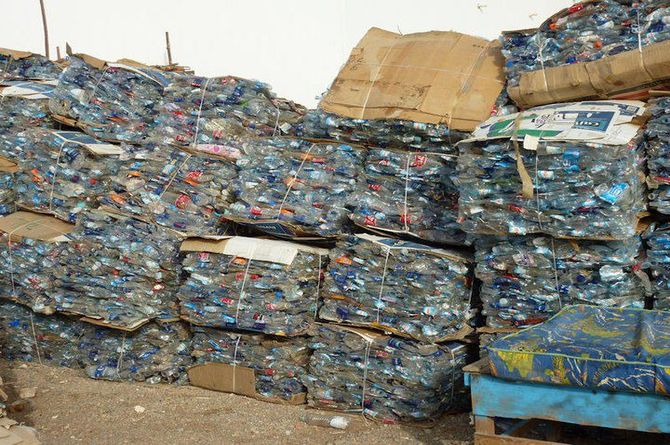Proof that recycling works!
Since August 2009, the Egyptian government has granted HEPCA sole responsibility for the management of waste collection and recycling in the southern Red Sea, an area roughly double the size of The Netherlands. Even in these first few months, the scheme has achieved some incredible results – proof that recycling really does make a difference and dramatically helps to reduce daily damage to the environment. Our Material Recovery Facility (MRF) in Marsa Alam city is the hub of the HEPCA solid waste management strategy. Waste is collected and separated at source into organic and non-organic matter before being transported to the MRF. Here, the vast majority of the waste is non-organic and it is sorted, processed and traded through to recycling firms. We also manage and operate a controlled dumpsite for non-recyclables. Organic waste is given to the local community for animal feed. Our latest figures show an outstanding success rate at the MRF in helping to reduce the Red Sea’s carbon footprint: PAPER Each month we recycle more than 8.5 tonnes of paper and cartons, saving - 145 trees - 34 barrels of oil - 25 cubic metres of landfill space - 34,000kw hours of energy - 59,500 gallons of water. Simply put, the monthly HEPCA recycled paper total saves enough energy for heat, electricity and air-conditioning for the average Egyptian home for almost 30 months. ALUMINIUM Each month we recycle more than 41,500 cans, saving - enough energy to run a television, or operate a computer for 14 years, or a computer centre with 20 computers for over one year. GLASS Each month we recycle at least 6000kg of glass, saving - enough energy to power a computer for 296 days, a 100-watt light bulb for 5.93 years and saves the equivalent of 272 litres of oil. PLASTIC Each month we recycle almost 259,000 plastic bottles and parts saving - enough energy to power a 60-watt light bulb for 89.9 years STEEL and TIN Each month we recycle an average of 4.5 tonnes of steel and tin saving - 24.9 tonnes of iron ore, 14 tonnes of coal, and 1.2 tonnes of limestone Greenhouse gas emissions result from the burning of municipality solid waste and are strongly influenced, in particular, by the plastic content of the input waste stream. Each month, the recycling and reuse of this waste by the HEPCA MRF saves around 65 tonnes of CO2 pollutants from entering the atmosphere of the Red Sea! Our solid waste management strategy is not only concerned with saving the environment but also saving livelihoods. Many valuable employment opportunities have been created for the local community in waste collection, transportation and staffing at the MRF. Further employment and income is also generated through the selling on of recyclable material. We estimate an additional 70 jobs will be created annually in support of this program. HEPCA would like to thank everyone who has been involved in the solid waste management strategy and in particular the MRF in Marsa Alam. This scheme is a tremendous achievement in helping to keep the Red Sea clean and addressing climate change in Egypt. We look forward to announcing developments elsewhere in the Red Sea soon.



